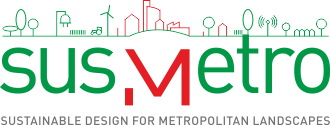The transformation of the European food system has started!
The 1st of January 2020 not only marked the beginning of a new decade, but also the start of the new EU Horizon 2020 project: FoodSHIFT2030. FoodSHIFT2030 is setting the ambitious goal of transforming European food systems by means of groundbreaking mechanisms for maturing, combining, upscaling and multiplying sustainable food system innovations.
Christian Bugge Henriksen from the University of Copenhagen is coordinating the FoodSHIFT2030 project and says: “Our house is on fire and the youth has called upon us to act. I am really happy to see that the EU is leading the way by committing to reducing greenhouse gas (GHG) emissions between 50% and 55% by 2030. Currently, the food system accounts for 20% to 30% of global GHG emissions. The FoodSHIFT2030 project will contribute to reducing these emissions and thereby supporting the Farm to Fork Strategy recently introduced in the European Green Deal”.
Dirk Wascher from SUSMETRO, the Innovation Manager of the FoodSHIFT2030 project, who will be guiding the food system transition in the FoodSHIFT Accelerator Labs, explains: “We are now starting the establishment of the FoodSHIFT Accelerator Labs in the nine front-runner city-regions: Avignon in France, Bari in Italy, Brasov in Romania, Barcelona in Spain, Berlin in Germany, Greater Athens in Greece, Greater Copenhagen in Denmark, Oostende in Belgium and Wroclav in Poland. Each of these Labs has its own innovation focus which has been developed bottom-up by the local food system stakeholders. Together they are covering a range of major themes within food system transition and are expected to generate high synergy with substantial EU-wide impacts”.
Dirk Wascher continues: “During the next four years we are going to support the Labs in increasing the technological and societal readiness levels of existing food system innovations in order to maximize their impact. Knowledge will be transferred between the nine front-runner city-regions and subsequently to twenty-seven follower city-regions through the establishment of FoodSHIFT Enabler Labs. By connecting with city-region networks this knowledge transfer will continue beyond the project lifetime and contribute to the required fast transition of the food system by 2030″.
“We have to acknowledge that reducing GHG emissions in the entire food value chain will be crucial for achieving the commitments under the Paris Agreement and keeping global warming below 1.5 degrees” says Christian Bugge Henriksen: “This means that we now have 10 years to transform the European food system towards a low carbon circular future. In order to succeed we need to support the transformative power of citizens already engaged in developing sustainable food system solutions. We need to work together on making the necessary transition towards less meat and more plant-based diets. And we need to strengthen urban and rural cohesion by making both cities and rural areas more livable”.
A total of 30 project partner organizations, including local governments, SMEs, NGOs, universities, research institutions and network partners are contributing to the FoodSHIFT2030 project. For more information about the FoodSHIFT2030 project see www.foodshift2030.eu. For more information about the European Green Deal see https://ec.europa.eu/info/strategy/priorities-2019-2024/european-green-deal_en
